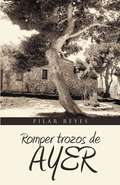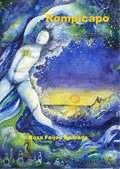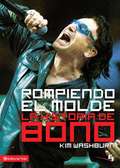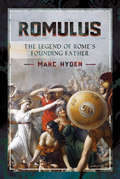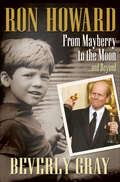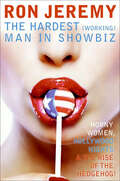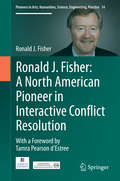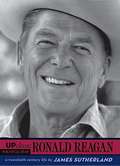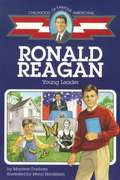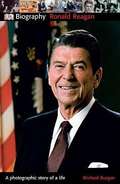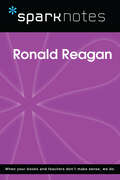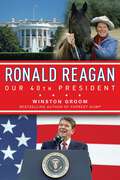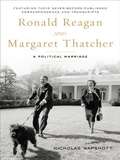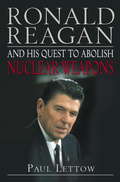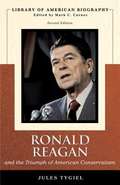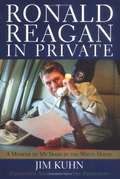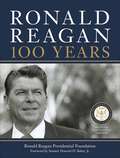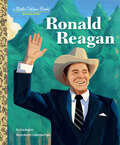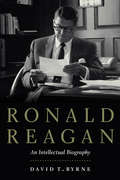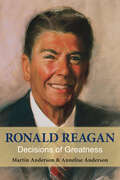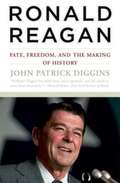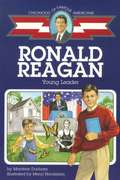- Table View
- List View
Romper trozos de ayer
by Pilar ReyesDe una gran riqueza descriptiva, esta novela introspectiva revela el pasado de María en el transcurso de un viaje de regreso después de dar a su padre el último adiós. Esta reflexión explora su pasado y determina el curso de su futuro. María es una mujer hecha a sí misma, recién cumplidos los cuarenta y con un divorcio acabado de estrenar, que ha lidiado, durante toda su vida, con el corazón y la mente divididas entre su tierra de nacimiento, Cataluña, y el lugar de sus orígenes, Andalucía; ese sentimiento de dualidad, unido a la fuerte influencia de la personalidad paterna, le ha marcado el carácter y se ha convertido en el leitmotiv de una vida dedicada a la pasión de enseñar. La devastadora muerte de su padre, punto de partida de la novela, actúa como punto de inflexión en la trayectoria vital de María; el tiempo durante el que transcurre el viaje de regreso desde el pueblo de origen paterno hasta su pueblo en la Costa Dorada catalana, actúa de hilo conductor de una historia que se desarrolla mientras la protagonista atraviesa los diferentes paisajes de la geografía española prolíficamente descritos- rememorando y evocando todos aquellos otros paisajes y pasajes de su historia particular como si de una película se tratase, reviviendo esos momentos de un pasado que la marcaron para siempre y la han convertido en la mujer de ese presente. Al final aprenderemos, con ella, que no importa lo que la vida te depare si la has afianzado en los pilares fundamentales de la familia, la amistad y el amor verdadero.
Rompicapo: Ci Spiega I Sentimenti Di Una Madre Che Vide Nascere Suo Figlio, Lo Vide Diventare Un Uomo, Lo Accompagnò Nella Meravigliosa Avventura Che È La Scoperta Della Vita E Poi Lo Vide Morire
by Rosa Feijoo Andrade Elena RizzoSi parla molto di HIV-AIDS, si elaborano statistiche, si realizzano ricerche, si accumulano fascicoli, ecc. ma si parla poco di quello che c'è dietro ogni numero, della storia di ogni persona che ha sofferto di questa malattia e ancor meno delle esperienze e dei sentimenti dei familiari al riguardo. Questo caso è differente. Ci spiega i sentimenti di una madre che vide nascere suo figlio, lo vide diventare un uomo, lo accompagnò nella meravigliosa avventura che è la scoperta della vita e poi lo vide morire.
Rompiendo el molde, la historia de Bono
by Kim WashburnLA HISTORIA DE UN MUCHACHO DE DUBLÍN QUE SE CONVIRTIÓ EN UNA DE LAS MAYORES ESTRELLAS DE ROCK DEL PLANETA Y NO SE CONFORMÓ CON SER SOLAMENTE UN CANTANTE Premios, fama, riquezas… ¡Bono pareciera tenerlo todo! Pero la mayor estrella de rock del mundo confiesa tener algo todavía más importante que ha guiado cada uno de sus pasos hacia el éxito: la fe en Dios. Desde su crianza en Irlanda en tiempos realmente peligrosos, hasta tocar en los mayores escenarios del mundo, las creencias de Bono lo han mantenido arraigado y enfocado en lo que verdaderamente importa. Ya sea usando su voz para cautivar a la audiencia o luchando por la justicia y la salud en África, el mundo sabe que además de cantar, Bono es un defensor de los perdidos y un héroe para los que pelean por un mundo más justo.
Romulus: The Legend of Rome's Founding Father
by Marc HydenA riveting biography of the legendary founder and first king of Rome.According to legend, Romulus was born to a Vestal Virgin and left for dead as an infant near the Tiber River. His life nearly ended as quickly as it began, but fate had other plans. A humble shepherd rescued the child and helped raise him into manhood. As Romulus grew older, he fearlessly engaged in a series of perilous adventures that ultimately culminated in Rome’s founding, and he became its fabled first king.Establishing a new city had its price, and Romulus was forced to defend the nascent community. As he tirelessly safeguarded Rome, Romulus proved that he was a competent leader and talented general. Yet, he also harbored a dark side, which reared its head in many ways and tainted his legacy, but despite all of his misdeeds, redemption and subsequent triumphs were usually within his grasp. Indeed, he is an example of how greatness is sometimes born of disgrace.Regardless of his foreboding flaws, Rome allegedly existed because of him and became massively successful. As the centuries passed, the Romans never forgot their celebrated founder.This is the story that many ancient Romans believed.Praise for Romulus“Hyden leans into a tone reminiscent of a bard regaling those around a campfire with stories of a hero’s great exploits . . . [He tells] a fascinating origin story.” —Booklist“As inherently fascinating a read as it is an impressive work of meticulous scholarship . . . a truly extraordinary, expressly informative, and highly recommended addition to personal, professional, community, college, and university library Roman History & Culture collections and supplemental curriculum studies reading lists.” —Midwest Book Review
Ron Howard: From Mayberry to the Moon . . . and Beyond
by Beverly GrayRon Howard: From Mayberry to the Moon… and Beyond, the first full-length biography of Ron Howard, takes an in-depth look at the Oklahoma boy who gained national fame as a child star, then grew up to be one of Hollywood's most admired directors. Although many show biz kids founder as they approach adulthood, Ron Howard had the advantage of brains, common sense, and two down-to-earth parents who kept him from having an inflated view of his own accomplishments. He also had a longstanding goal: to trade the glare of the spotlight for a quieter but equally creative life behind the camera. This biography tracks his career from 1960, when he debuted as six-year-old Opie Taylor on The Andy Griffith Show through 2002, when he accepted his Academy Award® as Best Director for A Beautiful Mind.Author Beverly Gray, an entertainment industry veteran, has spoken to teachers, friends, and professional colleagues from all phases of Howard's career. She has also combed the archives to gain further insight into this very private man whose accomplishments have brought pleasure to so many.
Ron Jeremy: The Hardest (Working) Man in Showbiz
by Ron JeremyHe's the porn world's Everyman. Blessed with an enormous "talent" yet average looks, he's starred in more than 1,700 adult films, directed 250 of them, and over the last twenty years has become porn's biggest ambassador to the mainstream. He's appeared in 60 regular films, 14 music videos, and VH1's Surreal Life, starred in the critically acclaimed Porn star (a movie about his life), and in Being Ron Jeremy (a take off on Being John Malkovich), co-starring Andy Dick. And that's just the tip of the iceberg. . . . Ron Jeremy is a born storyteller (funny, considering he doesn't do a lot of talking in his films). He knows where all the bodies are buried, and in this outrageous autobiography he not only shows you the grave but also gives you the back story on the tombstone. Get ready for Ron Jeremy—a scandalously entertaining deep insider's view of the porn industry and its emergence into popular culture, and a delectable self-portrait of the amazingly endowed Everyman every man wanted to be.
Ron's Big Mission
by Don Tate Rose Blue Corrine J Naden<P>Nine-year-old Ron loves going to the Lake City Public Library to look through all the books on airplanes and flight. Today, Ron is ready to take out books by himself. <P>But in the segregated world of South Carolina in the 1950s, Ron's obtaining his own library card is not just a small rite of passage; it is a young man's first courageous mission. <P>Here is an inspiring story, based on Ron McNair's life, of how a little boy, future scientist, and Challenger astronaut desegregated his library through peaceful resistance.
Ronald J. Fisher: A North American Pioneer in Interactive Conflict Resolution
by Ronald J. FisherThis edited volume presents selected papers focusing on Ronald Fisher's cumulative contributions to understanding destructive intergroup conflicts from a social-psychological perspective, and to the development and assessment of small group, interactive methods for resolving them. Highlights include schematic models of third party consultations, intergroup conflicts, and a contingency approach to third party intervention. Overall, the selected texts offer a comprehensive description and clear rationale for interactive conflict resolution and its unique contributions to peacemaking.
Ronald Reagan
by James SutherlandRonald Reagan was a Hollywood actor turned Republican politician known for his sunny optimism and gifted salesmanship. He entered the White House in 1981, a time when many Americans were wondering if their country's best days were behind them. But things had changed by the time he left office-the economy was thriving and the Cold War was coming to a close. The child of an alcoholic, he was an intensely private man, yet he was so charming that he routinely befriended even his enemies. Reagan was both a complex man and political figure, and his legacy strongly influences politics today.
Ronald Reagan
by Meryl Henderson Montrew DunhamThis lively, fictionalized biography of Ronald Reagan explores the early years of a boy who would grow up to become known to millions a movie star--and later as America's fortieth president.
Ronald Reagan
by Michael BurganFeaturing detailed sidebars, handy vocabulary boxes, and a visual timeline, this biography of the 40th president of the United States covers his boyhood in Illinois, his successful career as a Hollywood star, his tenure as governor of California, and his two terms in the Oval Office.
Ronald Reagan (SparkNotes Biography Guide)
by SparkNotesRonald Reagan (SparkNotes Biography Guide) Making the reading experience fun! SparkNotes Biography Guides examine the lives of historical luminaries, from Alexander the Great to Virginia Woolf. Each biography guide includes:An examination of the historical context in which the person lived A summary of the person&’s life and achievements A glossary of important terms, people, and events An in-depth look at the key epochs in the person&’s career Study questions and essay topics A review test Suggestions for further reading Whether you&’re a student of history or just a student cramming for a history exam, SparkNotes Biography guides are a reliable, thorough, and readable resource.
Ronald Reagan Our 40th President
by Winston GroomFrom the Author of Forest Gump, Ronald Reagan: Our 40th President <P><P>He was one of America's true greats. As president, he changed the world, developing a successful strategy for defeating Communism, toppling the Soviet Union, and liberating Eastern Europe (while hardly firing a shot). And just as important, he restored an America that had found itself mired in a malaise of falling living standards, moral decay, and what seemed like inevitable decline. <P><P>Though he was our oldest president, Reagan acted as a tonic, rejuvenating America's economy, restoring her confidence, and attracting a majority of young voters won over by his vision of making America once again a shining city on a hill.In this superlative biography for young adults, bestselling author Winston Groom--author of Forrest Gump--gives us the full Reagan, from his Midwestern American boyhood, to his early career as a radio sports announcer, to his days as a Hollywood star and his extraordinary political career as a union leader, governor of California, and president of the United States. <P><P>Covering the gamut of Reagan's dramatic life, Ronald Reagan: Our 40th President is essential reading, as inspiring as its subject.
Ronald Reagan and Margaret Thatcher
by Nicholas WapshottDrawing on interviews with those closest to them, as well as on hundreds of recently declassified private letters and telephone calls, Nicholas Wapshott depicts a complex, personal, and sometimes argumentative relationship between two unlikely political soulmates.
Ronald Reagan and his Quest to Abolish Nuclear Weapons
by Paul LettowInRonald Reagan and His Quest to Abolish Nuclear Weapons, Paul Lettow explores the depth and sophistication of President Ronald Reagan’s commitment to ridding humankind permanently of the threat of nuclear war. Lettow’s narrative spans the start of Reagan’s presidency and the 1986 Reykjavík summit between Reagan and Soviet leader Mikhail Gorbachev, during which America’s Strategic Defense Initiative (SDI) was a defining issue. Lettow reveals SDI for what it was: a full-on assault against nuclear weapon...
Ronald Reagan and the Triumph of American Conservatism (The Library of American Biography)
by Jules TygielJules Tygiel’s biography of Ronald Reagan engages students with the compelling story of the man who went from Hollywood actor to President of the United States. This balanced profile considers both the accomplishments and failures of Reagan’s presidency, as well as the contested legacy of his political career even after his death. Incorporating the latest scholarship, Ronald Reagan and the Triumph of American Conservatism examines Reagan both as an individual and in the larger context of the conservative movement.
Ronald Reagan in Private: A Memoir of My Years in the White House
by Jim KuhnJim Kuhn, President Reagan's executive assistant and author of this book, was one of the very few people privileged to see the Great Communicator (as people often referred to the President)not just during his historic public events, but also behind the scenes, during quiet moments. Kuhn was responsible for helping the most powerful man in the world manage his time and information. His memoir of an unguarded and unedited Ronald Reagan captures the laughter, resolve, sensitivity, and discomforts of the man who won the Cold War and restored America's confidence. President Reagan frequently shared with Kuhn his personal views on matters great and small, including his thoughts about world leaders such as Mikhail Gorbachev and Margaret Thatcher, and controversial issues such as nuclear weapons, taxes, and women's rights. Kuhn recalls many poignant moments that will surprise readers, no matter how much they already know about President Reagan. For example: How the President reacted when staff disappointed him and things didn't go as planned The time he felt distraught over arms negotiations with the Soviets President Reagan's true personal thoughts about abortion What aspersion bothered him more than any other How President Reagan felt about the Iran-Contra scandal and the figures involved During his 13 years of service to Ronald Reagan, Kuhn discovered a man who acted the same off camera as he did in front of the world; who showed the same respect to an anonymous caller to the White House as he did to Pope John Paul II; who was more nuanced and perceptive than the press would ever admit; who never let the power and prestige of the Presidency go to his head. Now that Ronald Reagan has passed away, there is a hunger for a deeper understanding of what made him a great President. Jim Kuhn offers a unique perspective on the private Ronald Reagan that will fascinate his millions of admirers.
Ronald Reagan: 100 Years
by Ronald Reagan Presidential FoundationA photo-filled centennial celebration of the life, career, and legacy of America’s fortieth president.Known as “the Great Communicator,” Ronald Reagan combined the best of small-town values and remarkable virtues with the eloquence and charm that came from a life spent in the public eye. From his early days, Reagan was a leader, whether saving lives as a lifeguard or demonstrating for students’ rights as a college undergraduate. His career as a sports broadcaster and later as a leading man in Hollywood paved the way for a career in politics. As governor of California, Reagan earned the respect of world leaders and the American public. But it was as president of the United States that his strength of character, leadership, and love of country were best displayed. His eight years in the Oval Office ushered in remarkable change domestically and brought international peace, prosperity, and freedom.Ronald Reagan: 100 Years is the official centennial publication from the Ronald Reagan Presidential Foundation. Featuring archival photographs of the Reagan family along with insightful text, this book is the ultimate commemorative edition to mark the one hundredth anniversary of President Reagan’s birth—offering an intimate insider’s glimpse of the life and legacy of a beloved American leader.Includes a foreword by Senator Howard Baker
Ronald Reagan: A Little Golden Book Biography (Little Golden Book)
by Lisa RogersHelp your little one dream big with a Little Golden Book biographyabout actor-turned-president Ronald Reagan! The perfect introduction to nonfiction for young readers—as well as fans of all ages!This Little Golden Book about Ronald Reagan—the 40th president of the United States who loved horses and jellybeans—is an inspiring read-aloud for young girls and boys. Look for more Little Golden Book biographies: • George W. Bush • John McCain • My LGB About the White House • My LGB About Johnny Appleseed
Ronald Reagan: An Intellectual Biography
by David T. ByrneIn this ambitious work David T. Byrne analyzes the ideas that informed Ronald Reagan’s political philosophy and policies. Rather than appraising Reagan’s personal and emotional life, Byrne’s intellectual biography goes one step further; it establishes a rationale for the former president’s motives, discussing how thinkers such as Plato and Adam Smith influenced him. Byrne points to three historical forces that shaped Reagan’s political philosophy: Christian values, particularly the concept of a universal kingdom of God; America’s firm belief in freedom as the greatest political value and its aversion to strong centralized government; and the appeasement era of World War II, which stimulated Reagan’s aggressive and confrontational foreign policy. Byrne’s account of the fortieth president augments previous work on Reagan with a new model for understanding him. Byrne shows how Reagan took conservatism and the Republican Party in a new direction, departing from the traditional conservatism of Edmund Burke and Russell Kirk. His desire to spread a “Kingdom of Freedom” both at home and abroad changed America’s political landscape forever and inspired a new conservatism that persists to this day.
Ronald Reagan: Decisions of Greatness
by Martin Anderson Annelise AndersonRonald Reagan's Cold War strategy was well established in his first year in office and did not change throughout his presidency. It was to make absolutely sure in the minds of the Soviets that they too would be destroyed in a nuclear war—even as Reagan sought an alternative through strategic defense to make nuclear missiles obsolete and thus eliminate the possibility of an all-out nuclear war. This book offers new perspectives on Ronald Reagan's primary accomplishment as president—persuading the Soviets to reduce their nuclear arsenals and end the Cold War. It details how he achieved this success and in the process explains why Americans consider Reagan one of our greatest presidents. The authors examine the decisions Reagan made during his presidency that made his success possible and review Reagan's critical negotiations with Soviet leader Mikhail Gorbachev—ending with the 1988 Moscow Summit that effectively ended the Cold War. They present Gorbachev's thoughts on Reagan as a great man and a great president 20 years after he left office. But ultimately, they reveal the depth of Reagan's vision of a world safe from nuclear weapons, painting a clear portrait of a Cold Warrior who saw the possibility of moving beyond that war.
Ronald Reagan: Fate, Freedom, and the making of History
by John Patrick DigginsIn his pursuit of Emersonian ideals in his distrust of big government, he was the most open-minded libertarian president the country has ever had; combining a reverence for America's hallowed historical traditions with an implacable faith in the limitless opportunities of the future. This is a revealing portrait of great character, a book that reveals the fortieth president to be an exemplar of the truest conservative values.
Ronald Reagan: The Politics of Symbolism
by Robert DallekA portrait of Reagan midway through his Presidency.
Ronald Reagan: Young Leader (Childhood of Famous Americans Series)
by Montrew DunhamOne of the most popular series ever published for young Americans, these classics have been praised alike by parents, teachers, and librarians. With these lively, inspiring, fictionalized biographies -- easily read by children of eight and up -- today's youngster is swept right into history.
Ronald W. Reagan: Fortieth President of the United States
by Neal E. RobbinsPresents the life of Ronald Reagan, including his childhood, education, employment, and political career.
